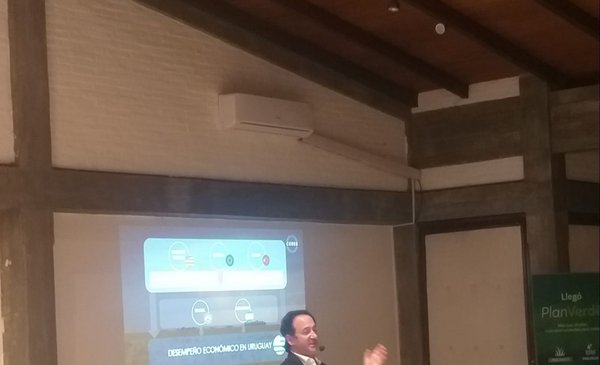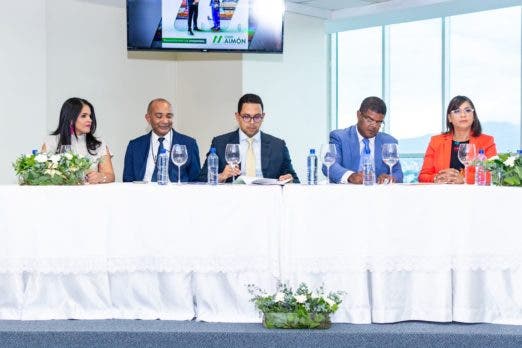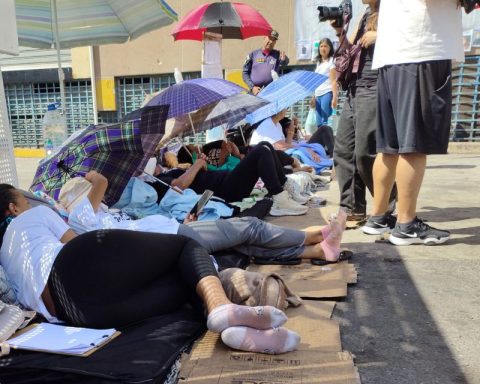In the opinion of executive director of Ceres, Ignacio Munyo, In the current geopolitical context, the Uruguayan government should prioritize moving forward with formal adherence to the trade agreement. transpacific (CPTPP) than to the process of nnegotiating with China for a bilateral FTA. For the economist, it is “much more urgent” to go down this road than to turn to the Asian power.
He added that the Foreign Ministry today does not have the capacity to negotiate with everyone, so “you have to choose.” In addition, he recalled that even China showed interest in joining the Transpacific and that other countries are already moving forward to join and get ahead of Uruguay’s queue such as Costa Rica, Ecuador or the United Kingdom, which is very soon to formally join.
The Uruguayan Foreign Ministry instructed the ambassadors in Australia, Brunei, Canada, Chile, Japan, Malaysia, Mexico, New Zealand, Peru, Singapore and Vietnam – the 11 countries that make up the agreement – to start informal conversations to explore the disposition and concerns of those States before a possible entry. President Luis Lacalle Pou announced last July that Uruguay had decided to formally apply to join this treaty.
The economist spoke last Friday night at the ordinary annual assembly of the Society of Milk Producers of Florida (SPLF), an instance where he addressed the economic prospects for the dairy sector and the Uruguayan economy.
Munyo warned of an economic “cooling” both in the US and in Europe and China, with a drop in activity in the last quarter. He added that beyond the global concern about a possible recession, inflation continues to be the big issue because the developed world had “forgotten” to live with high levels of price increases. The economist indicated that the central banks of these countries are often asked an “impossible mission” with the handling of their monetary policy to lower inflation without “creating panic” in the markets.
The economist indicated that the Fed’s policy of raising rates “will have consequences” because a rate of 3.8% for a 10-year US Treasury bond is the highest in a decade. “This is a challenge for investment, which must have a return above 4%. That the rate rises is not good because it is necessary to have better internal conditions to attract investments to the country; it is a fact of reality”, warned Munyo.
Less favorable context
The executive director of Ceres considered that the Uruguayan economy will have a growth floor of 5% for this year only due to a statistical drag effect, assuming that activity remains stagnant during the second half of the year. However, the Ceres Leading Index indicated that GDP expanded again in the third quarter (July-September).
The bad news for Uruguay’s interests is a significant drop in commodity prices, although they are still above pre-pandemic levels. Munyo considered that by 2023 it will be very difficult to repeat the “very favorable” external context that the Uruguayan economy had in the last two years.
On the other hand, he emphasized some of the challenges that the incorporation of technology is generating in the labor market. There he gave as an example an industrial production that is today 10.5% above pre-panemdia levels but with 10% fewer hours worked. “This is very strong data,” he warned. He said the gain in productivity generates an impact on employment and that the country has the challenge of seeking alternatives to those workers who cannot be employed by the industry.
Likewise, the analyst warned of his concern about the lag in the real exchange rate since the country is 11% more expensive than the historical average with China, 19% with the US, 23% with Europe and 41% with Brazil. Munyo admitted that the government has “very little room for maneuver” to influence the nominal value of the exchange rate because many dollars have come in from record exports and also from the largest investment in the history of the country that is in full execution (UPM II in Paso de los Toros). “The reality is that you can’t ask the Central Bank to raise the dollar,” he admitted.
In the case of some commodities such as milk and rice, the country already has levels of competitiveness “below the historical average”, although this has not yet happened with meat and soybeans.


















